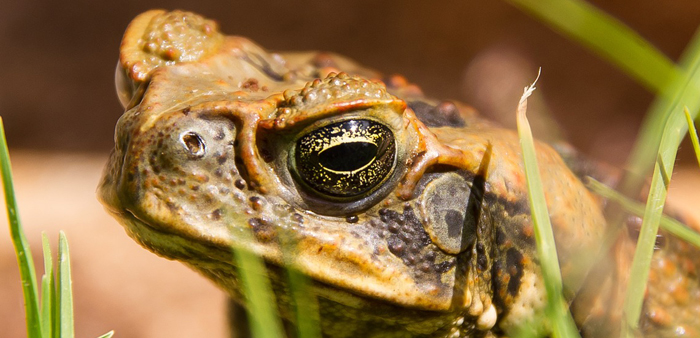Shoring up Australia’s defences against the next cane toad invasion will be front and centre under a Senate inquiry announced today.
“This new Senate inquiry will look at how we can stop pests and diseases as bad or even worse than the cane toad from breaching Australia’s borders and devastating our natural environment,” Invasive Species Council CEO Andrew Cox said today.
“Just a few weeks ago we discovered that a close relative of the cane toad, an Asian black-spined toad, had been found in a Melbourne backyard. If there are more than one and they start to breed, Victoria could have a major environmental catastrophe on its hands.
“This biosecurity breach shows just how easily new invasive pests can make their way into Australia.”
Failures over the past 14 years have seen some of the world’s most dangerous invasive pests and diseases make their way into Australia.
- Red fire ants form aggressive super colonies that deliver a painful bite, kill small animals and take over lawns and almost any natural habitat.
- Yellow crazy ants arrived recently in Queensland’s wet tropics but are already killing large numbers of the unique red land crabs on Christmas Island.
- Myrtle rust, a deadly plant-killing pathogen, arrived in NSW just four years ago and has quickly spread to Queensland and Victoria.
“This inquiry will be crucial to working out how we can stop the next cane toad from breaching our borders and wreaking havoc on the Australian environment,” Mr Cox said.
The Senate voted to establish the inquiry on the last sitting day before Labor and the Greens lose their Senate majority on 1 July. The five-month inquiry will put a spotlight on recent quarantine failures for some of our worst environmental invaders.
“This inquiry will be the first time in more than a decade that the Australian Parliament has scrutinised the symptomatic failures of our biosecurity laws that have let in so many environmentally damaging invasive species.
More info
- Senate inquiry information and terms of reference >>
- Asian black-spined toad and recent failures in environmental biosecurity >>
For comment
Andrew Cox, Invasive Species Council: 0438 588 040







